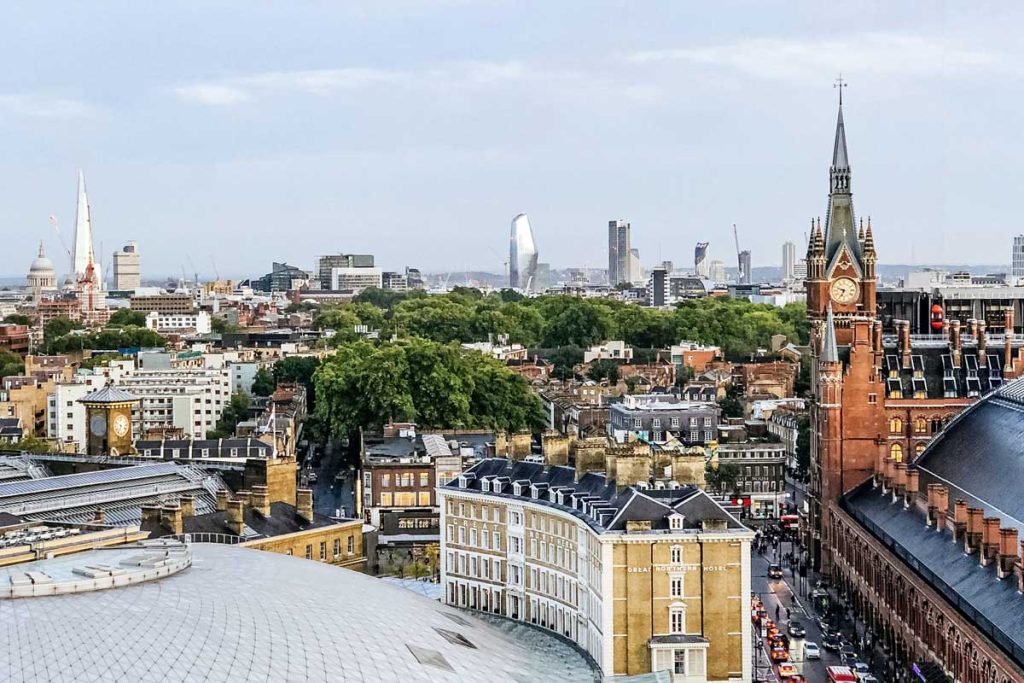As UK consumers navigate a prolonged cost-of-living crisis, the mainstream media narrative obscures a thriving recovery play opportunity in one of Britain’s most exciting real estate sectors – leisure. And evidence shows that Middle East investors are getting wise to the opportunity
By Paul Simmons

In October 2022, the UK consumer price index (CPI) reached 11.1 percent – its highest level since March 1982. By October 2023, the CPI had more than halved to 4.7 percent, illustrating a steady correction.
Yet, like many of its European neighbours, Britain’s cost of living crisis continues to bite – an issue that dominates headlines and frustrates policymakers. Behind the headlines, however, is a lesser-told story: the country’s leisure industry is booming – and Middle East investors are ploughing billions of dollars into the sector.
Analysis shows that cash-rich Middle East investors are getting wise to the soaring number of leisure real estate opportunities in the UK. The UK hotel sector received a staggering 65 percent of all Middle Eastern private capital invested in the UK in 2022.
In total, Middle East investors are forecast to invest $3.2 billion in UK real estate in 2024 – reflecting growing affordability and rising interest in areas such as leisure, sports, cultural assets, and student accommodation.
Underpinning the surge in leisure real estate is the counterintuitive fact that despite the cost-of-living crisis, discretionary spending on leisure activities has continued to grow since the pandemic. The Deloitte Consumer Tracker shows that in Q3 2023, net spending in the leisure sector grew for the third consecutive quarter.
The most notable growth in discretionary spending has been in the holidays and hotels, restaurants and going out categories. Furthermore, the UK’s Office for National Statistics (ONC) reports that the largest contribution to growth in Q1 2023 was from recreation and culture. Interestingly, opportunities are not London-centric.
Middle East investors are increasingly being seen to diversify their real estate investments across the country’s other major cities, including Manchester, Birmingham, Newcastle, and Bristol.
Resilient income and capital growth
This has created significant opportunities for savvy investors in the UK leisure real estate sector to generate resilient income and strong capital growth over the short to medium term. Yet the nature of Britain’s leisure sector is changing, with growing demand from consumers for out-of-town retail and leisure parks that offer a variety of entertainment experiences.
The phrase ‘Leisure Property’ is a broad term that refers to properties that are occupied by users or operators offering services related to recreation and free time activities, providing an experiential product to consumers.
The sector covers a wide range of uses, including hotels, gyms, sports centres, cinemas, concert halls, arenas, bowling and other competitive socialising, and restaurants and bars. Large retail and leisure destinations like these represent the new normal for Britain’s discretionary spending.
The great news for Middle East investors is that in terms of capital value growth and occupier demand, the leisure sector in the UK usually benefits from longer income streams, with operators looking to agree to lengthier lease terms to increase their Company’s enterprise value. This proves to be a win for investors.
Integrated high-yield destinations
Leveraging the sector’s potential, specialist UK property investment firms are innovating unique leisure real estate models that are shown to deliver IRRs upwards of 10 percent on top of equity.
Underpinning this type of approach is a shift towards investing in assets that are located in areas benefiting from strong, sufficiently sized, and appropriate demographics. These include student populations, young professionals, or areas with a large number of families – all demographics with adequate levels of disposable income.
Developments such as Swansea’s The City Gates’ project, which was significantly oversubscribed by Middle Eastern investors, are designed to appeal to these specific demographics.
The City Gates project is purpose-built and comprises c. 155,000 sq ft of leisure space anchored by a 12-screen VUE multiplex cinema, a 166-bed Premier Inn hotel and 255 space multi-storey car park. The destination is populated with a strong mix of tenants, including food and beverage operators alongside experiential vendors like bowling, adventure golf, fitness centres and hotels.

Such a highly targeted approach to developing an integrated leisure and lifestyle destination is unusual in the UK real estate market – as is its 9 percent target average cash-on-cash return. Furthermore, with a growing number of divestments from monolithic pension providers, there is a growing pool of potential assets in the sector.
For Middle Eastern investors such as high-net-worth individuals or family offices, the discretionary spending of the UK consumer is providing a rare opportunity. Investors seeking resilience, stability, and strong cash returns can now leverage emerging opportunities to invest in high-yield leisure real estate developments.
Investors of all types should recognise the inherent strength of a real estate sector that – thus far – has proven to hedge against historic levels of inflation during a cost-of-living crisis.
The original version of this article was featured in Arabian Business Online and the January 2024 print edition.